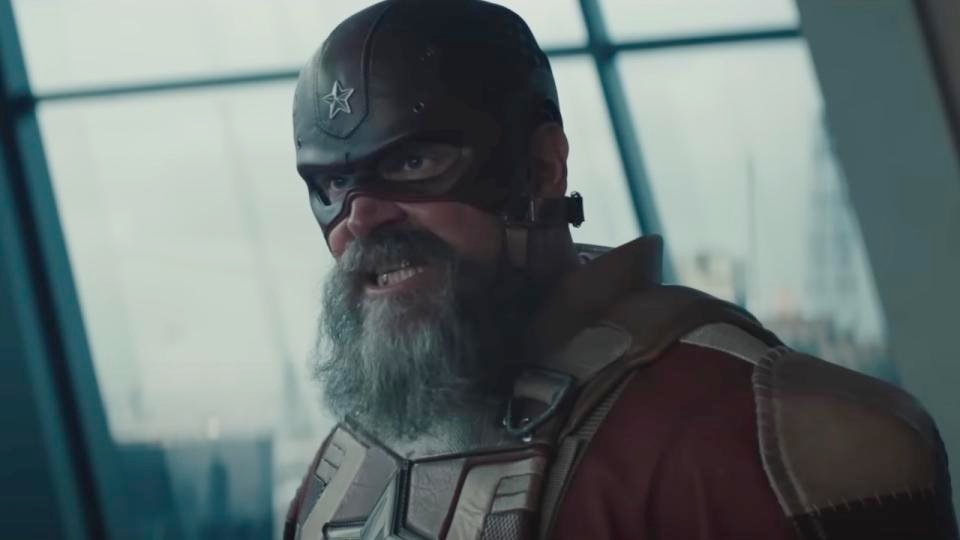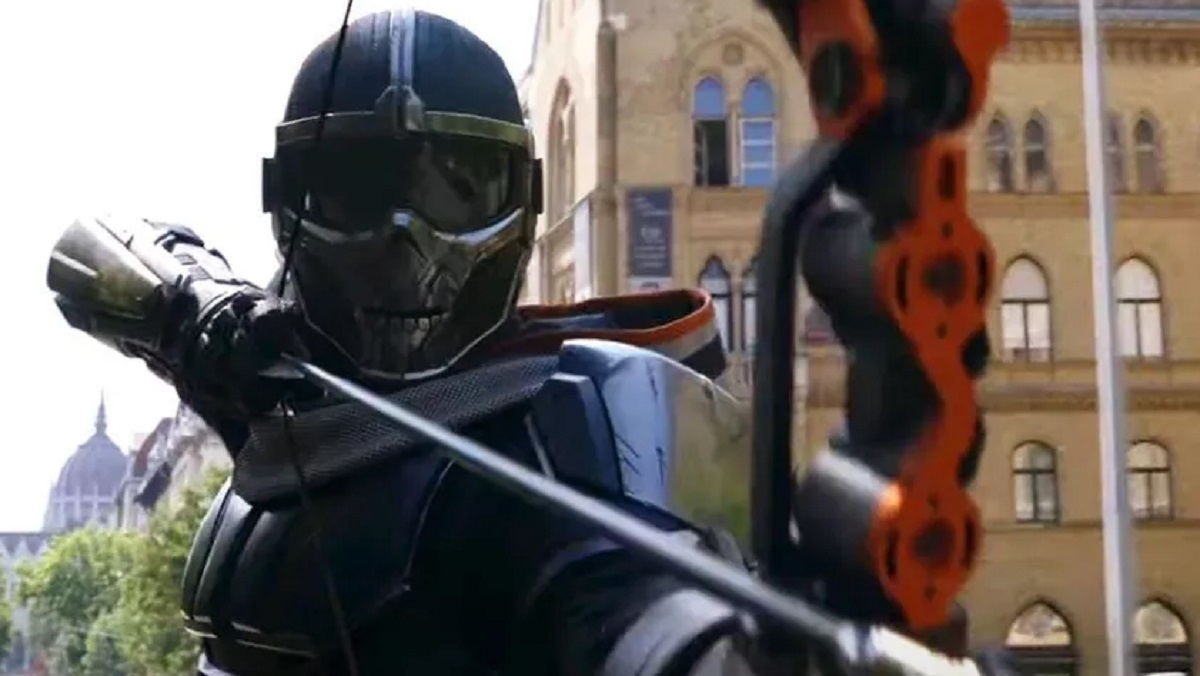Marvel’s finally diving headfirst into the messy, complicated world of antiheroes—and with Thunderbolts*, they might’ve just assembled their most emotionally honest team yet. Forget the do-gooder Avengers. If the MCU has ever had a crew that bleeds, bruises, and actually feels like us, this is it. Unlike Earth’s Mightiest Heroes, this squad isn’t saving the world out of nobility. They’re doing it while carrying deep scars, tangled histories, and more trauma than they’d ever admit. In an age where audiences crave imperfection and vulnerability, that might be exactly what makes them so relatable.
And that’s not just a vibe—it’s a trend, backed by data. A Morning Consult survey found that 52% of adults now prefer morally ambiguous films over traditional good-vs-evil narratives. Another OnePoll study revealed that over a third of viewers relate most to antiheroes, drawn to their flaws and emotional complexity.
We’ve already seen that hunger thrive on TV. The Boys skewers the very idea of superheroism as a corporate-branded lie. Peacemaker takes a blood-soaked mercenary—a guy who’d probably kill you for looking at him wrong—and forces him to confront the hollowness of his ideals. And Loki, the god of mischief himself, has stumbled his way through grief, love, and multiversal identity crises, all while never fully shaking his darker instincts.
Now Thunderbolts* brings that emotional mess to the big screen. And this cast? Let’s just say no one’s showing up squeaky clean.
Yelena Belova: The Wounded Heart

Florence Pugh’s Yelena Belova has quietly become one of the MCU’s most magnetic presences. Still armored in grief and cutting humor, she carries Natasha’s legacy like an old scar—visible, tender, and formative. But she’s evolving. Where she was once driven by vengeance, she’s now trying to understand what strength really means. Natasha’s final act in Avengers: End Game wasn’t just brave—it was selfless. And that reframed Yelena’s whole view of heroism, pushing her toward something deeper: agency, direction… maybe even peace.
Bucky Barnes: The Survivor

Bucky Barnes (Sebastian Stan) has endured one of the MCU’s most gut-wrenching arcs: from loyal friend to government weapon to a man desperately trying to piece together the wreckage of his past. He’s no invincible soldier. He’s a survivor, carrying the crushing weight of what was done to him, and what he was forced to do. The Winter Soldier and Civil War weren’t just the MCU’s best action showcases. They were also quiet studies in trauma and identity. For Bucky, it’s never been about easy redemption. It’s about a brutal reckoning and the long, hard fight to forge a new purpose after being a tool for so long, in a world that still struggles to see him as anything else.
Ghost: The Fragmented Self

Ava Starr (played by Hannah John-Kamen) wasn’t a villain so much as a victim—left behind by institutions, shaped by pain, and barely held together by the one person who truly cared: Dr. Bill Foster (Laurence Fishburne), who tried to help her reclaim her humanity. Introduced in Ant-Man and the Wasp, Ghost’s trauma literally fractured her being.
Her unstable phasing became a metaphor for how unresolved pain can splinter your sense of self. The return of Ghost in Thunderbolts* is significant, suggesting both her survival and the possibility of healing. After years of being weaponized and in constant agony, this could be her chance to finally catch a break.
Red Guardian: The Washed-Up Idealist

David Harbour’s Red Guardian showed up in Black Widow full of bluster, bravado, and Cold War nostalgia. But beneath the jokes is a man wrestling with faded purpose and misplaced glory. He represents a kind of fractured patriotism—a guy molded by myth, now trying to matter again. His arc isn’t flashy, but it’s quietly heartbreaking. In a team like the Thunderbolts, that kind of emotional weight might finally find a place to land.
John Walker/U.S. Agent: The Fallen Patriot

Wyatt Russell’s John Walker was hand-picked to be the new Captain America in The Falcon and the Winter Soldier. He was supposed to be the embodiment of what the government wanted: the perfect patriot. But Walker quickly found out that combat in the field is a whole different ballgame in a world of superheroes. Giant green rage monsters like the Hulk, heavily armored geniuses like Tony Stark, and the elite Dora Milaje—who, let’s just say, gave him a very humbling experience—showed him just how out of his depth he was.
His partner’s death pushed him over the edge, leading him to take the super-soldier serum. Stripped of the Captain America shield and driven to questionable acts, Walker’s now on a path to try and reclaim his honor and solidify his morality. This is a guy who’s been to the highest highs and lowest lows, and now he’s got to figure out where he stands.
Taskmaster: The Blank Slate

Olga Kurylenko’s Taskmaster was originally introduced as a living weapon in Black Widow—controlled, manipulated, and erased. She wasn’t evil; she was stripped of autonomy. Now, she’s free but unmoored, and that opens up a whole new emotional playground. Her story is less about revenge and more about discovering identity after it’s been stripped away. It’s not just character development. It’s self-discovery in real time.
This lineup turns the team dynamic into something deeper, more like a thesis on survival and self-worth. The film asks: What does redemption look like when the world won’t forgive you? And more urgently: How do you forgive yourself?
The Wildcard Nemesis: Robert Reynolds a.k.a. The Sentry
And then there’s the real wildcard: Robert “Bob” Reynolds (played by Lewis Pullman), a.k.a. The Sentry. He’s got the power of a god, but he’s also at war with himself—literally. His darker half, the Void, is a shapeshifting force of chaos and destruction that lives inside him, threatening to undo everything in its path. Imagine Superman if he struggled with schizophrenia, if every act of heroism came with the risk of unleashing something terrifying. Reynolds is unstable, unpredictable, and the kind of character who forces everyone around him to question what heroism really means when the biggest battle is happening inside your own head.
So it’s fitting that this particular group is the one sent to stop him. Each of them is carrying guilt, pain, confusion—and yet they’re the ones trying to save the world. Not for glory. Not for redemption. But to make sense of their own stories. To feel like they belong somewhere. Maybe in taking down someone who’s torn between two selves, they’ll figure out how to reconcile their own. And hey, maybe they will earn their place on a Wheaties box, too.

When it comes to Thunderbolts*, think The Suicide Squad meets The Breakfast Club but make it Marvel. The mission’s one thing, but the real conflict is whether any of them actually feel like they deserve to be there in the first place.
We don’t know how massive the threat will be, or how this team will come together. But we do know this: Thunderbolts* might just be the MCU’s most honest reflection of what it means to be broken, trying, and human. From the early buzz, it sounds like Marvel has hit a home run with its Thunderbolts* movie.
Felipe Patterson is a freelance writer and entertainment journalist who has written for Taji Mag, Watercooler HQ, Newsweek, GQ South Africa, and other outlets. He writes about film, television, and culture.
The post The Antihero Era: Why the Thunderbolts Might Be Marvel’s Most Human Team Yet appeared first on Nerdist.
Source: Kiat Media
0 Comments